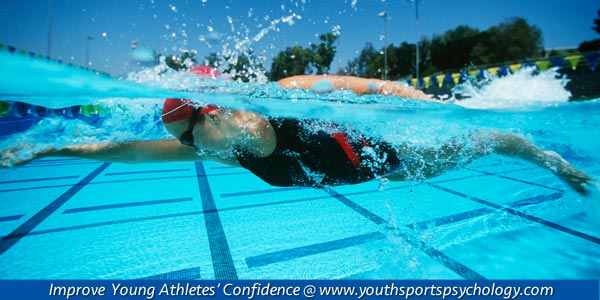
Parents: Supporting Your Athletes’ Goals
Barbara Hopewell, the sports mom to Summer Sanders–a swimmer who won four medals at the 1992 Olympic games–recently told us some of her sports parenting secrets.
Hopewell, who was the subject of Sanders’ book, “Champions Are Raised, Not Born: How My Parents Made Me a Success,” says it’s critical for parents to support their kids’ goals. But parents should not try to establish the goals for their young athletes.
Goal setting was important to Sanders, says Hopewell. “Every year the goals would change, depending on what was going on,” she says. With one coach, in high school, Sanders and her team would set long-term and short-term goals once a year.
“The coach would sit down with them and go over their goals, asking, ‘Is this realistic or is this too easy for you?’ He was comfortable letting them make their decisions based on his input.”
The bottom line:
“It was important that the kids learned to coach themselves. In sports like swimming, you have to be self-motivated, you have to set your own goals, know what you want and not rely on coaches telling you this.”
Where does the sports parent fit in?
Hopewell felt it was her job to support her daughter’s efforts. That meant taking her to practices and being involved in her sports life.
“If you tell your child, ‘I’m not taking you to practice’ or if you’re not involved, it will make it difficult for your child to reach her goals and it’s discouraging,” Hopewell says.
Again, for sports parents, providing support means supporting the child’s dreams–not your own, she stresses. In swimming, Hopewell saw coaches and parents push kids really hard. These kids often excelled when they were young, but burnt out, she says.
“These swimmers tend to be very fast, very young. But they don’t make it to their ultimate goal of the Olympic team. They can’t take the pressure and the workload.”
And while you’re working hard at making sure you don’t exert too much pressure, what do you do when your young athlete loses interest in sports, even when she’s clearly a winner? That’s what happened to Sanders when she was 14.
A family friend asked Sanders why she was putting so much time into swimming, at the expense of friendships and other parts of her life, and Sanders replied, “I don’t know.”
“I couldn’t believe it,” says Hopewell. Later, Hopewell talked to her daughter. “Do not be doing this for anyone but yourself,” she told Sanders. “We won’t be upset with you if you decide not to swim anymore.”
Again, she let Sanders be her own coach.
Related Articles on Youth Sports:
- Helping Young Athletes Kick Perfectionism and Fear of Failure
- How To Support Your Athlete’s Coach
- Help Athletes Improve Confidence for the New Season
*Subscribe to The Sports Psychology Podcast on iTunes
*Subscribe to The Sports Psychology Podcast on Spotify
Help Young Athletes Boost Confidence in Sports!
Every day, we receive letters from parents like you who want their children and teens to excel in sports. However, these parents can see fear, doubt, and frustration on the faces of their kids who struggle with the “inner” game of sports. But these parents have no idea how to help their kids overcome the worries, expectations and self-defeating thoughts that prevent their young athletes from feeling confident and successful.
You can benefit from our 15-plus years’ of work in sports psychology and sports parenting research. Now, you can tap into our secrets to sports success through a cutting-edge, 14-day program that helps young athletes overcome the top “mental game” challenges that sports parents face—and the top challenges young athletes face.

